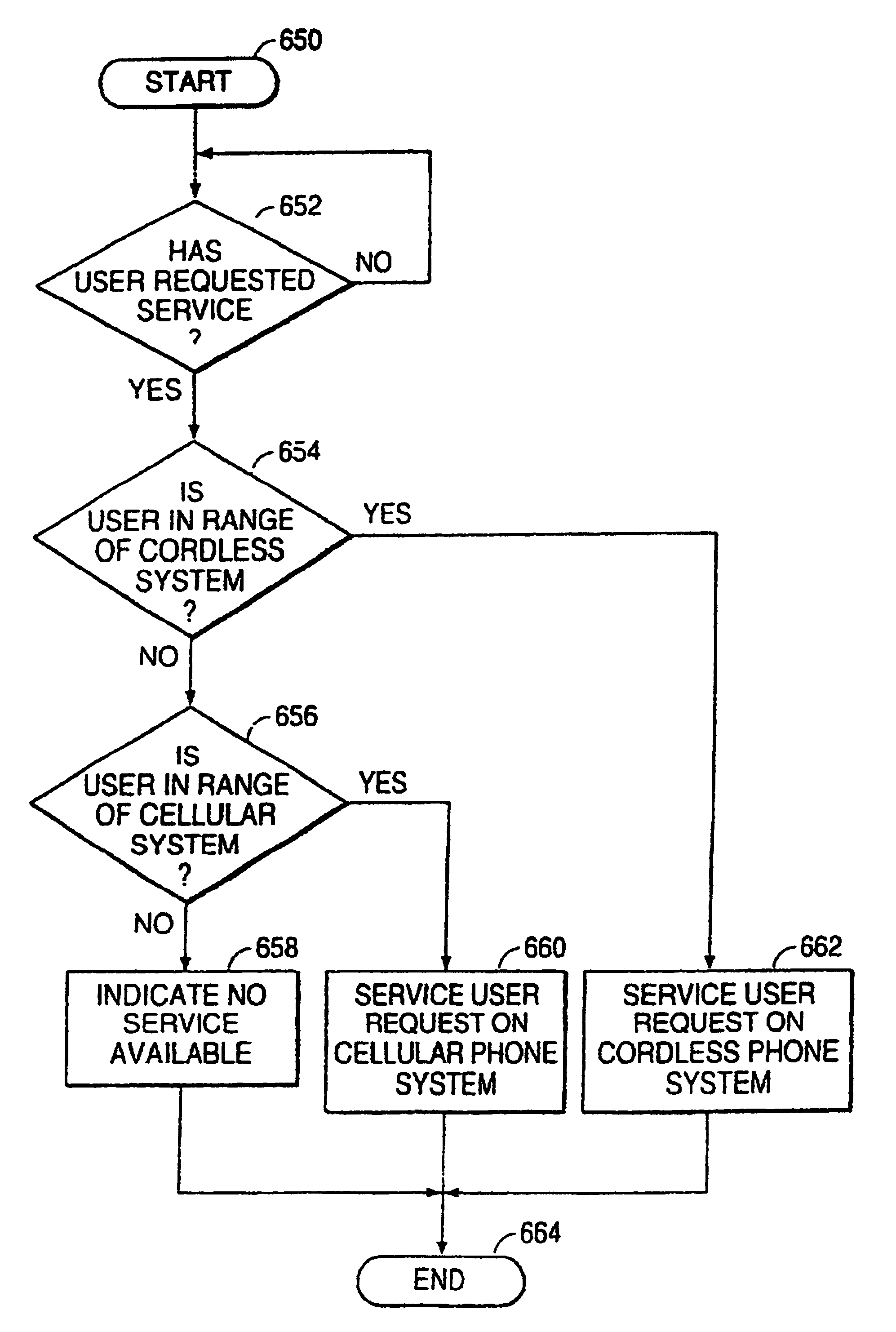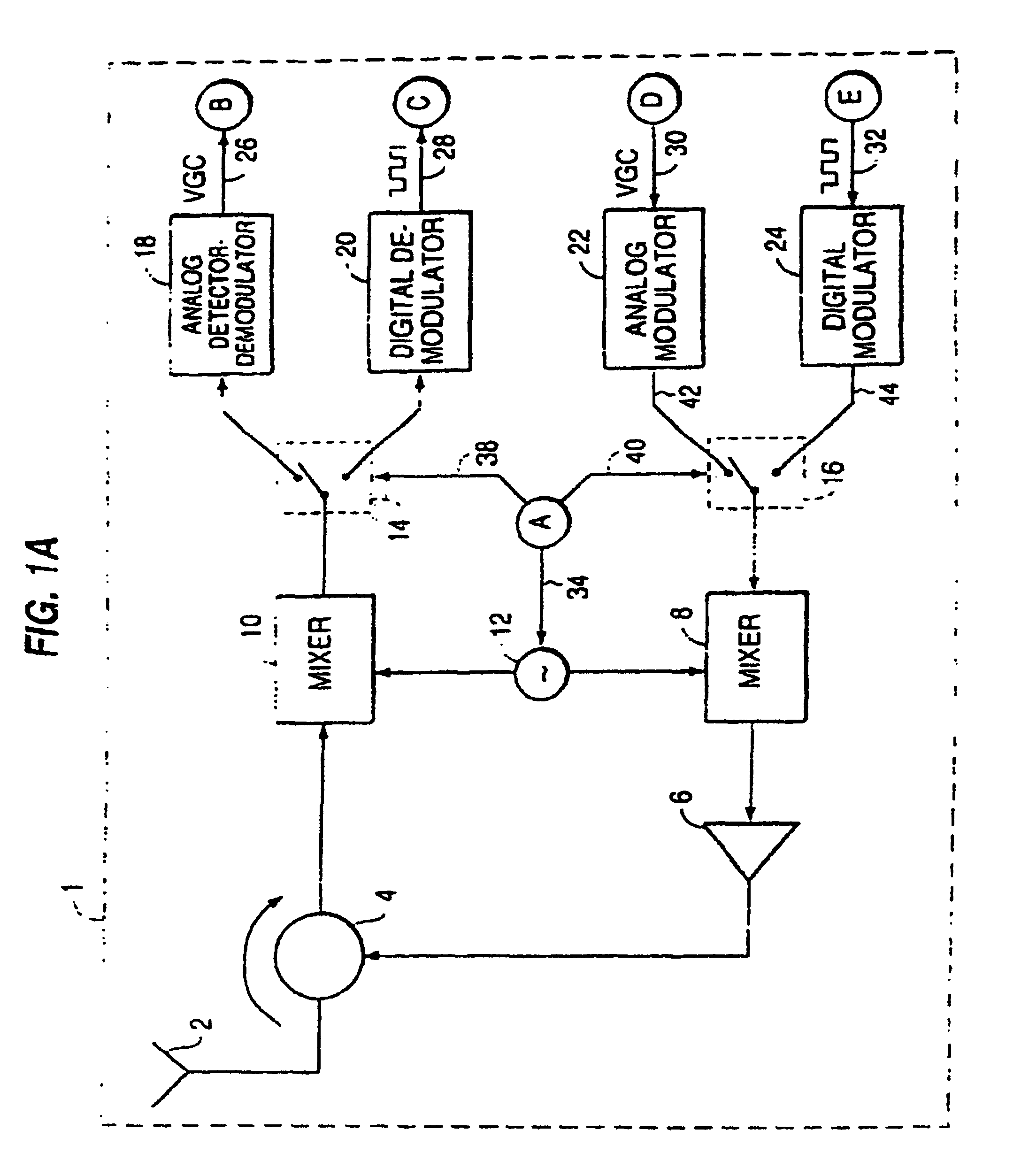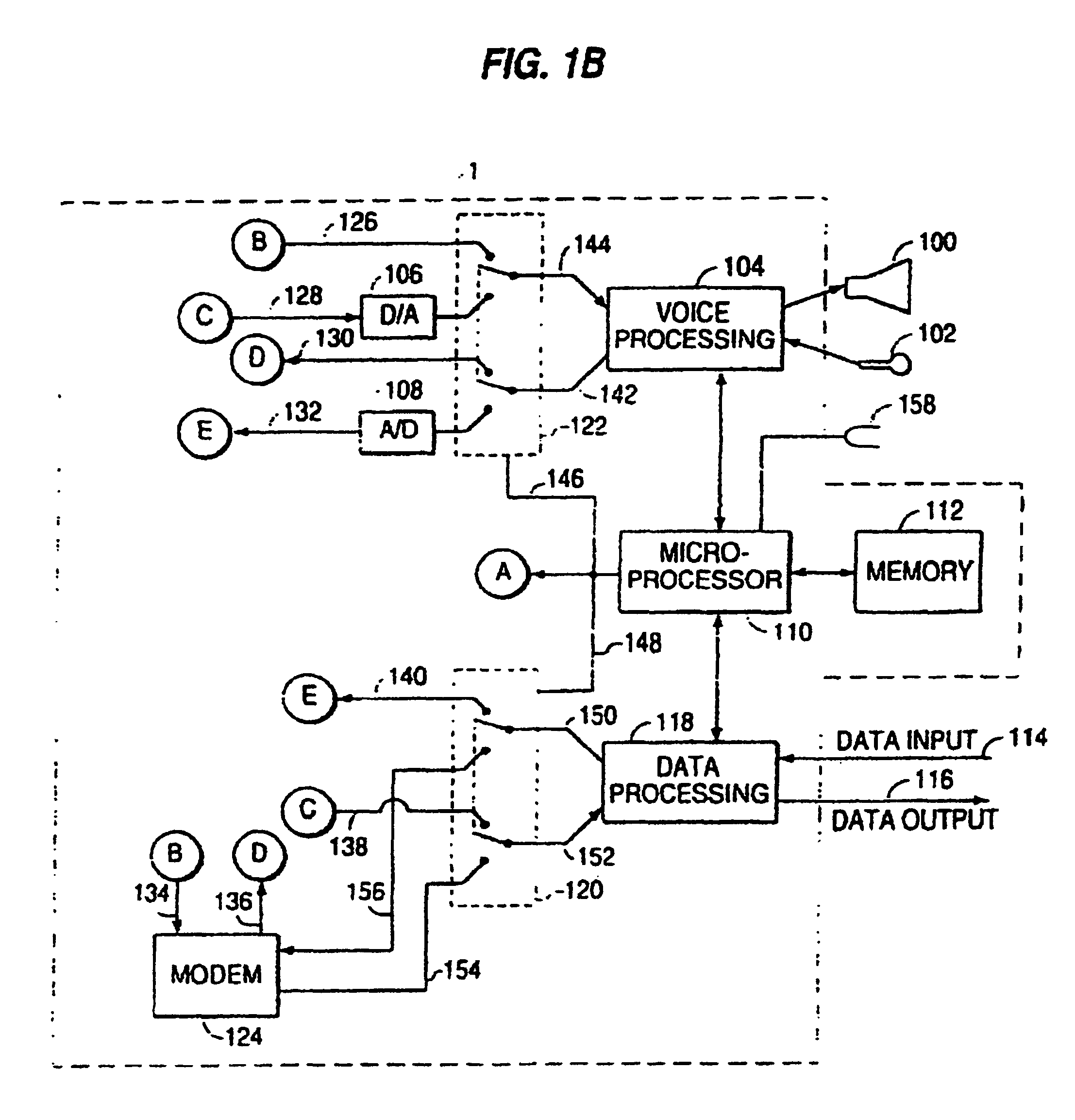Apparatus and methods for networking omni-modal radio devices
a radio device and radio technology, applied in the field of antennas and methods for networking omni-modal radio devices, can solve the problems of low ideal product and method concepts, high specialized and limited to a specific application, and inability to easily adapt to different transmission protocols or radio infrastructures, so as to achieve the most business and profit-making potential, easy and convenient identification, and lowest possible cost
- Summary
- Abstract
- Description
- Claims
- Application Information
AI Technical Summary
Benefits of technology
Problems solved by technology
Method used
Image
Examples
Embodiment Construction
[0036]A preferred embodiment of a standardized radio processing circuit 1 is shown in FIGS. 1A and 1B. The standardized radio processing circuit 1, shown in FIGS. 1A and 1B taken together, may be implemented on a single VLSI chip or on a set of VLSI chips making up a chipset. As will be seen, this chip or chipset provides a standard building block which can be used to make a plurality of consumer products that provide data transmission capability. As will be seen later with reference to FIGS. 2 through 8, by adding minimal external components to the standardized circuit 1, a wide variety of products can be produced. Also, as will be seen, the standardized circuit 1 can be advantageously implemented on a removable card with a standardized interface connector or connectors, so that it can then be selectively inserted into and removed from a variety of devices to provide the devices with radio information transmission capability.
[0037]In terms of the preferred functional and operationa...
PUM
 Login to View More
Login to View More Abstract
Description
Claims
Application Information
 Login to View More
Login to View More - R&D
- Intellectual Property
- Life Sciences
- Materials
- Tech Scout
- Unparalleled Data Quality
- Higher Quality Content
- 60% Fewer Hallucinations
Browse by: Latest US Patents, China's latest patents, Technical Efficacy Thesaurus, Application Domain, Technology Topic, Popular Technical Reports.
© 2025 PatSnap. All rights reserved.Legal|Privacy policy|Modern Slavery Act Transparency Statement|Sitemap|About US| Contact US: help@patsnap.com



